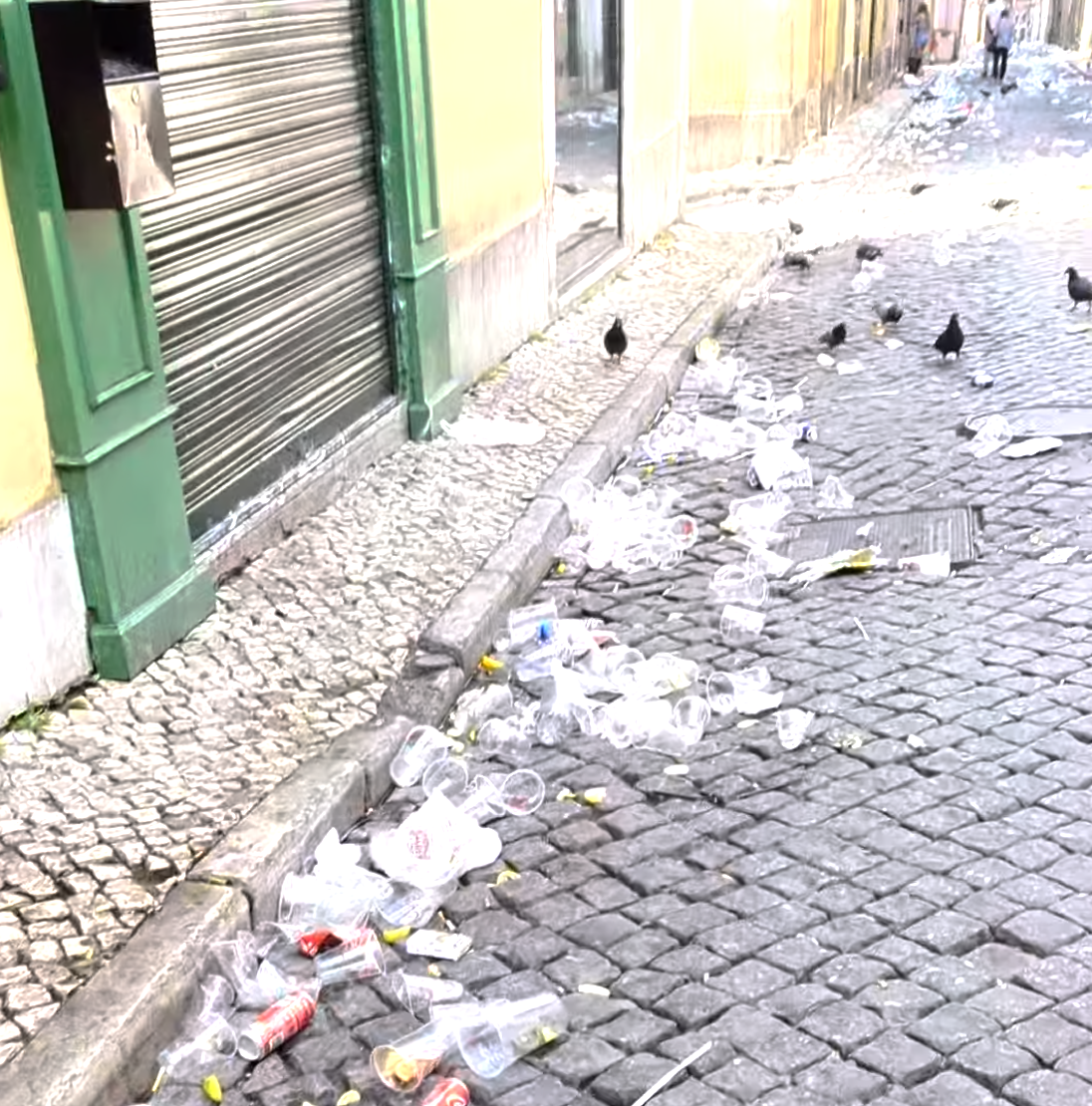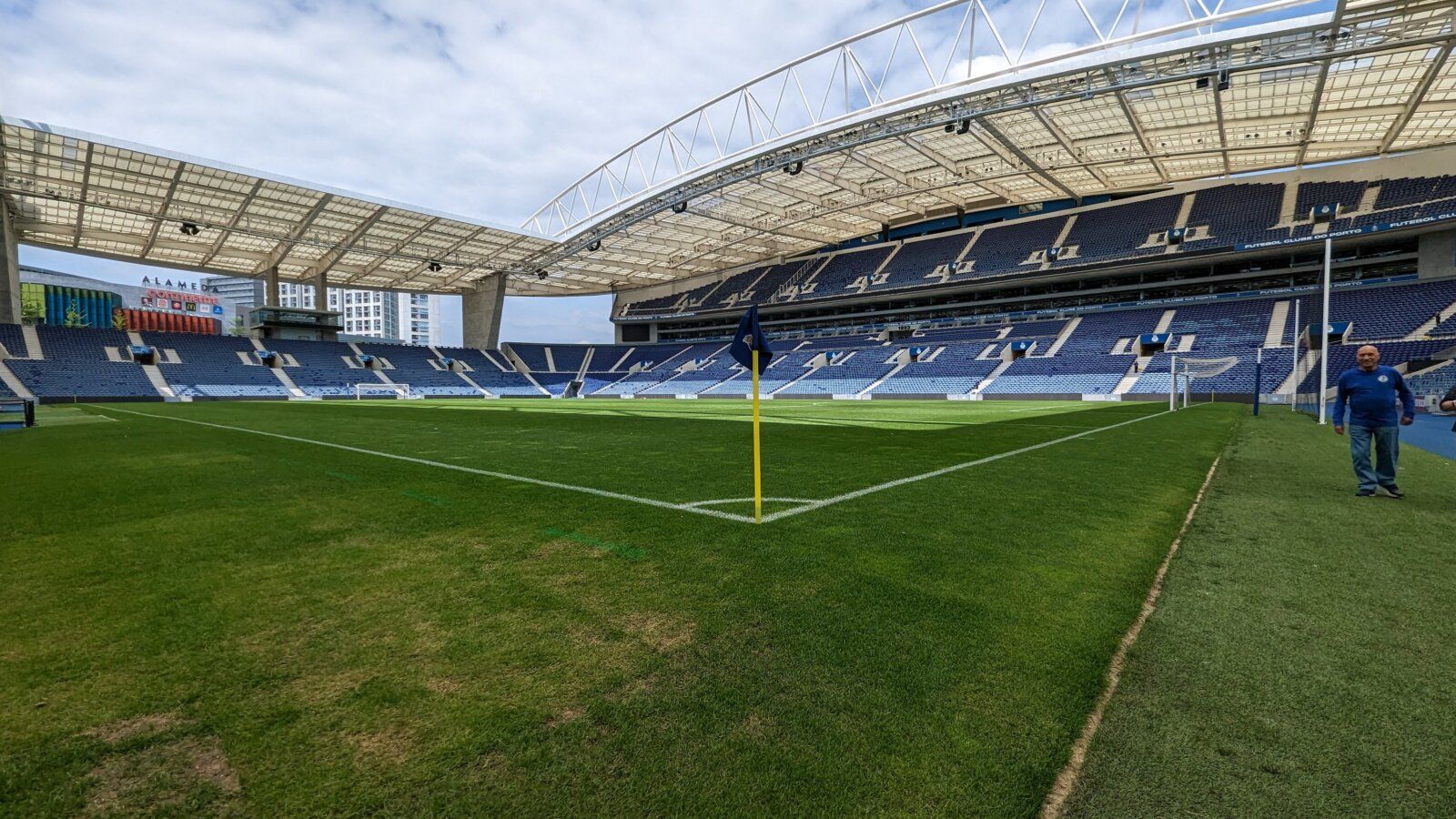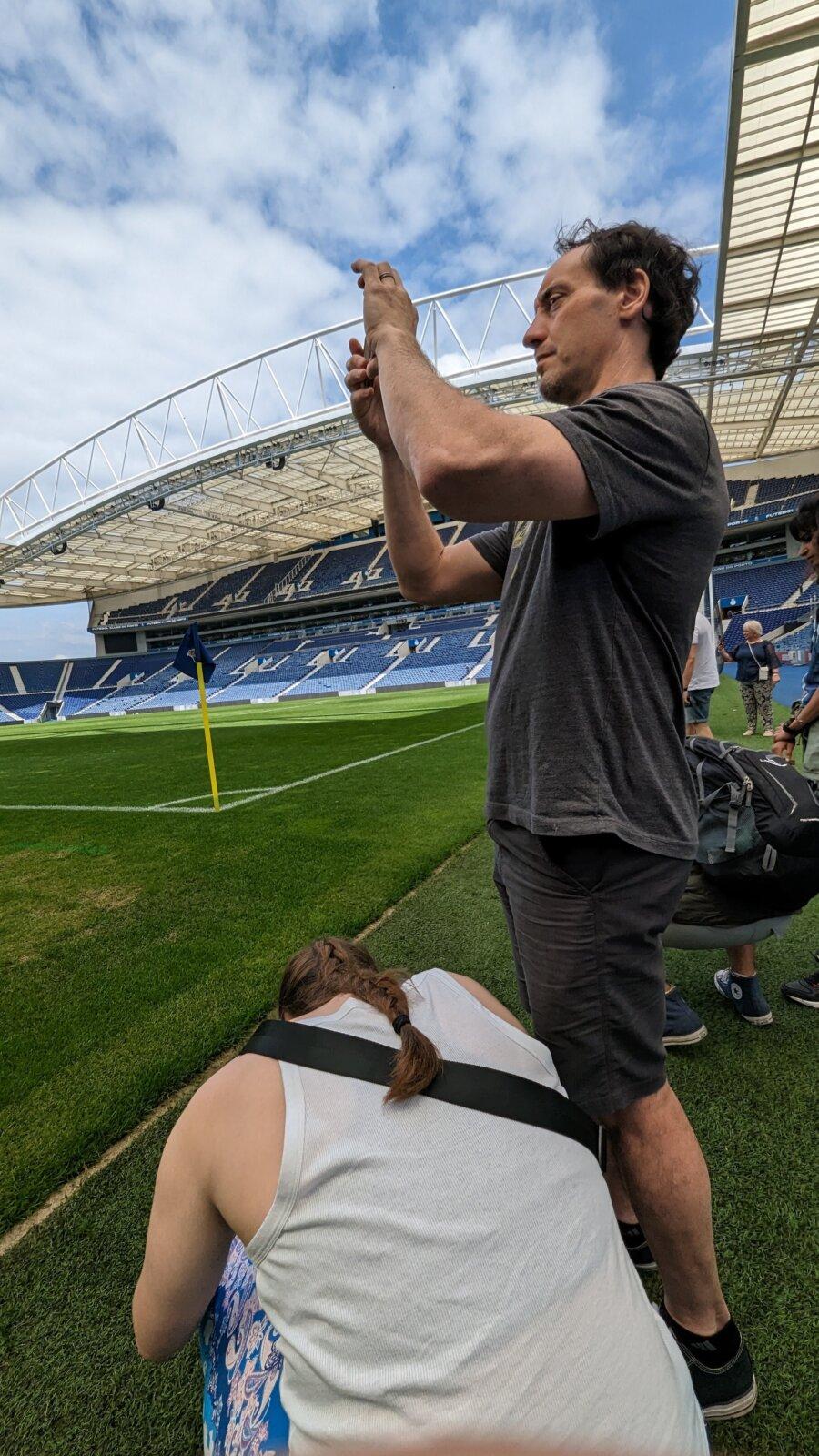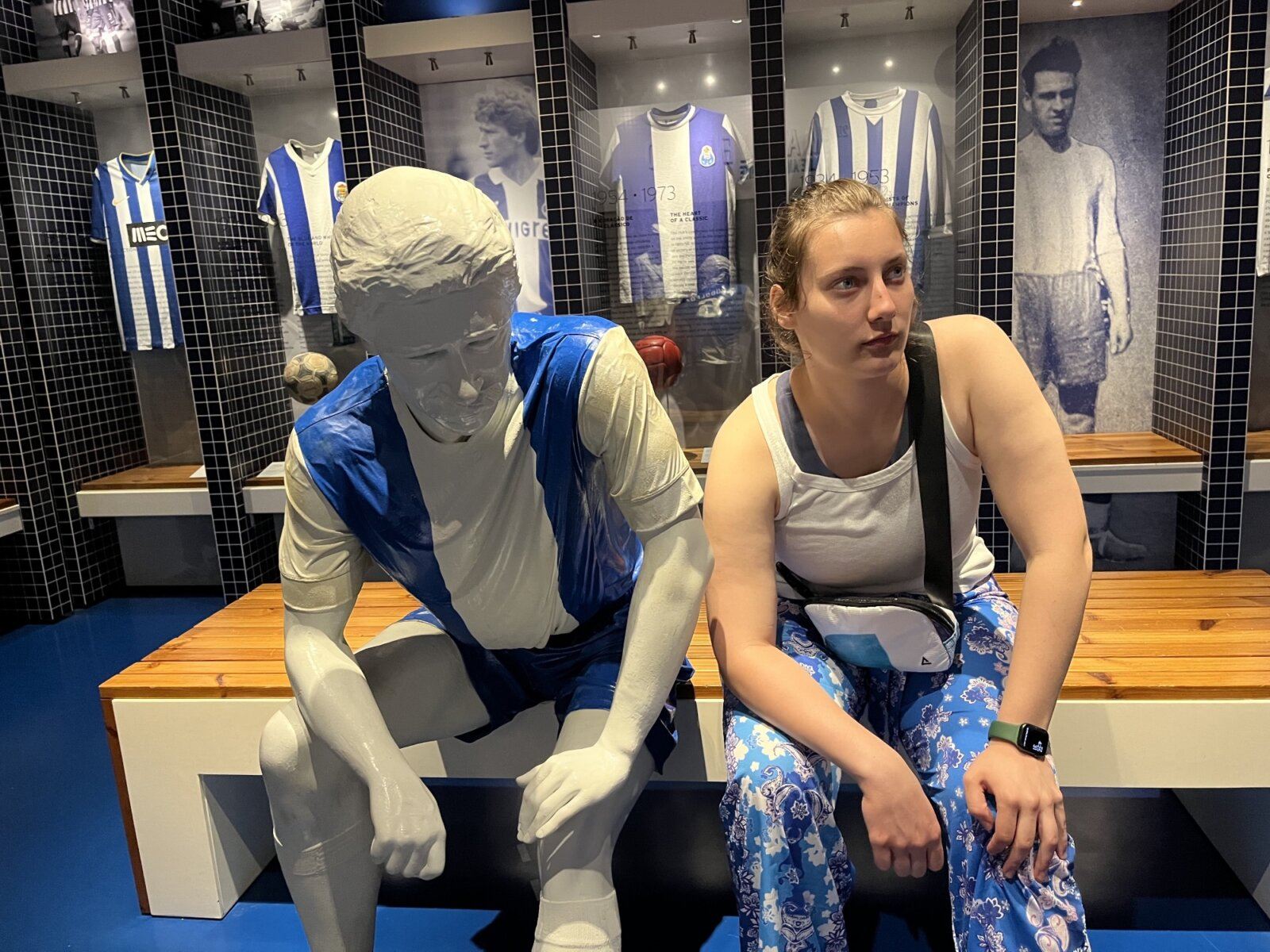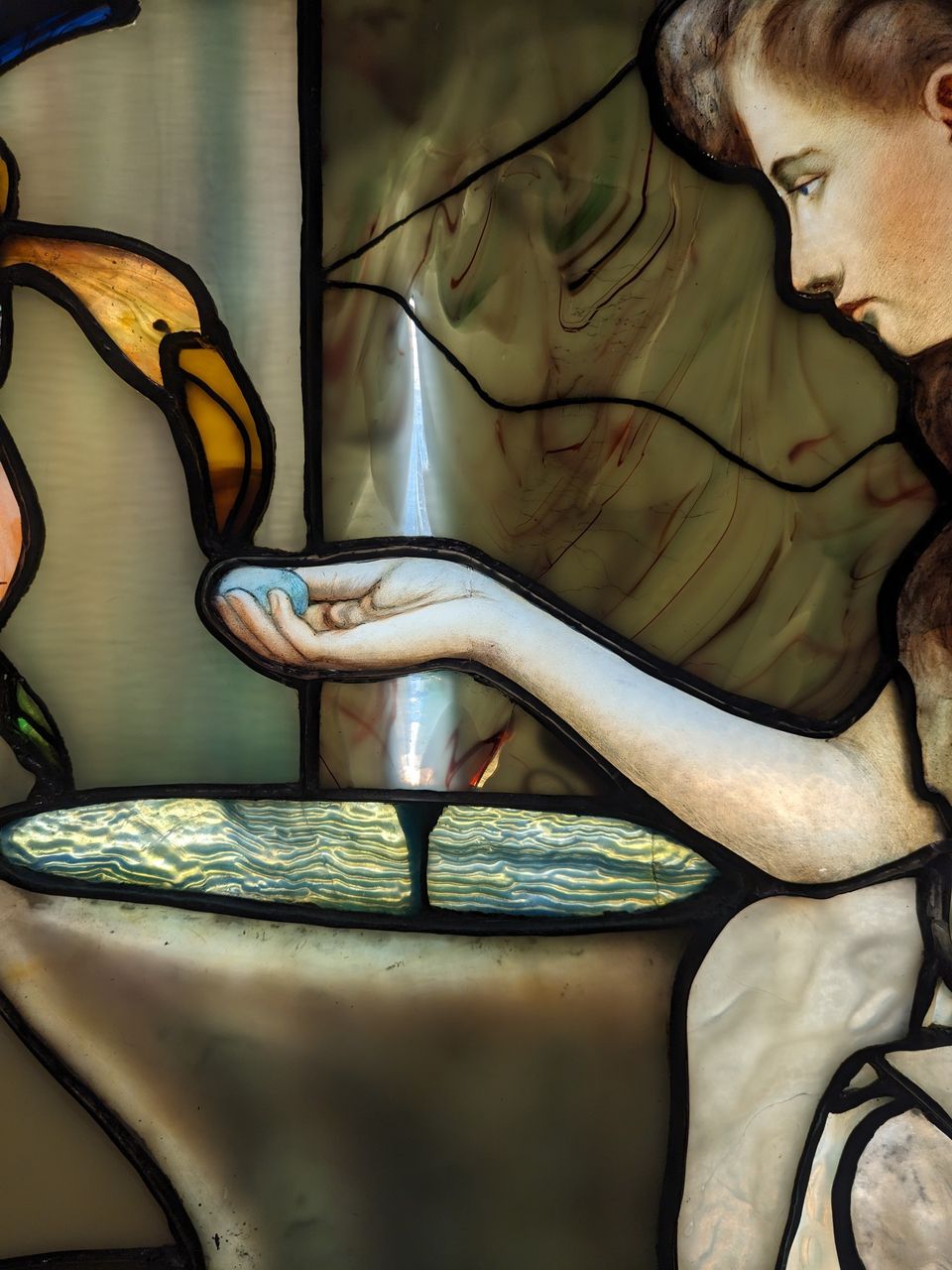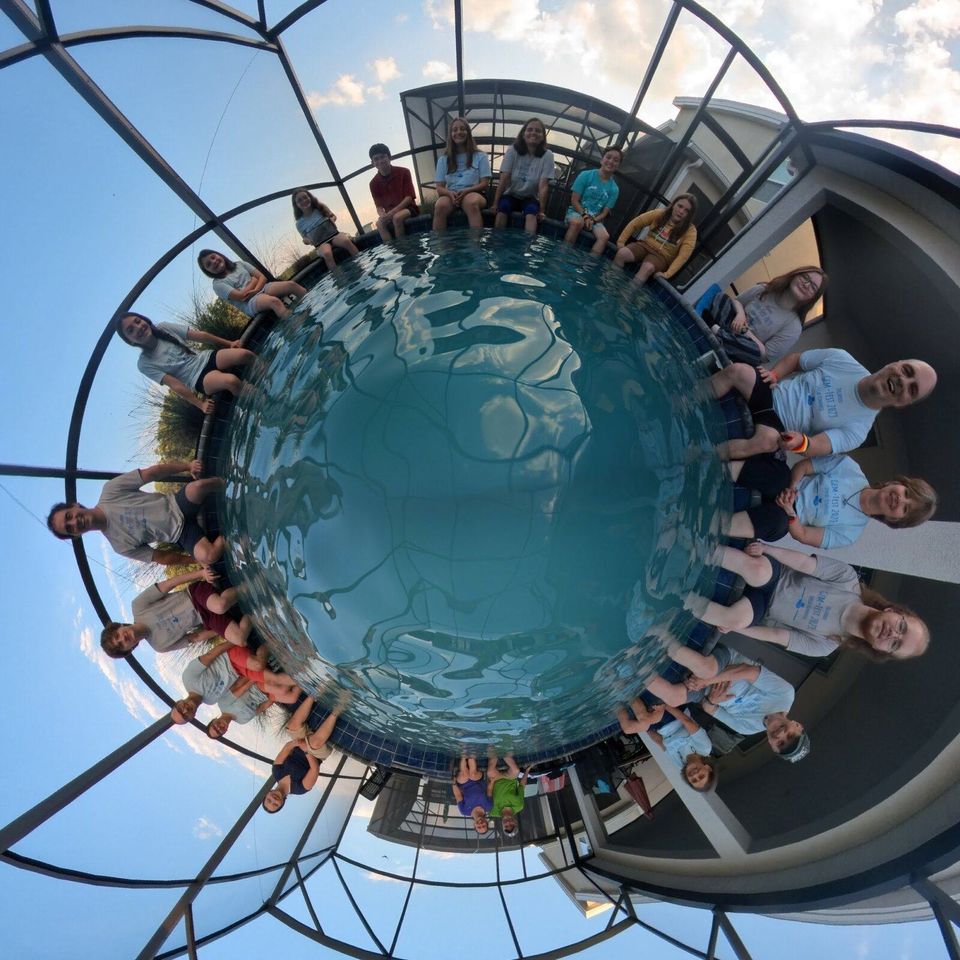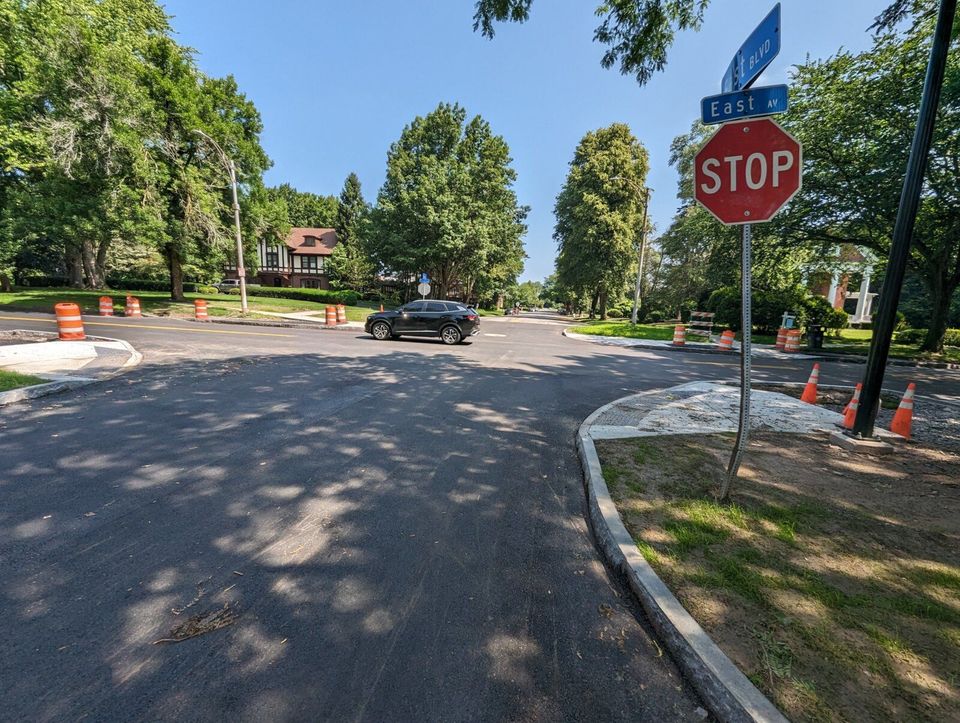Porto FC
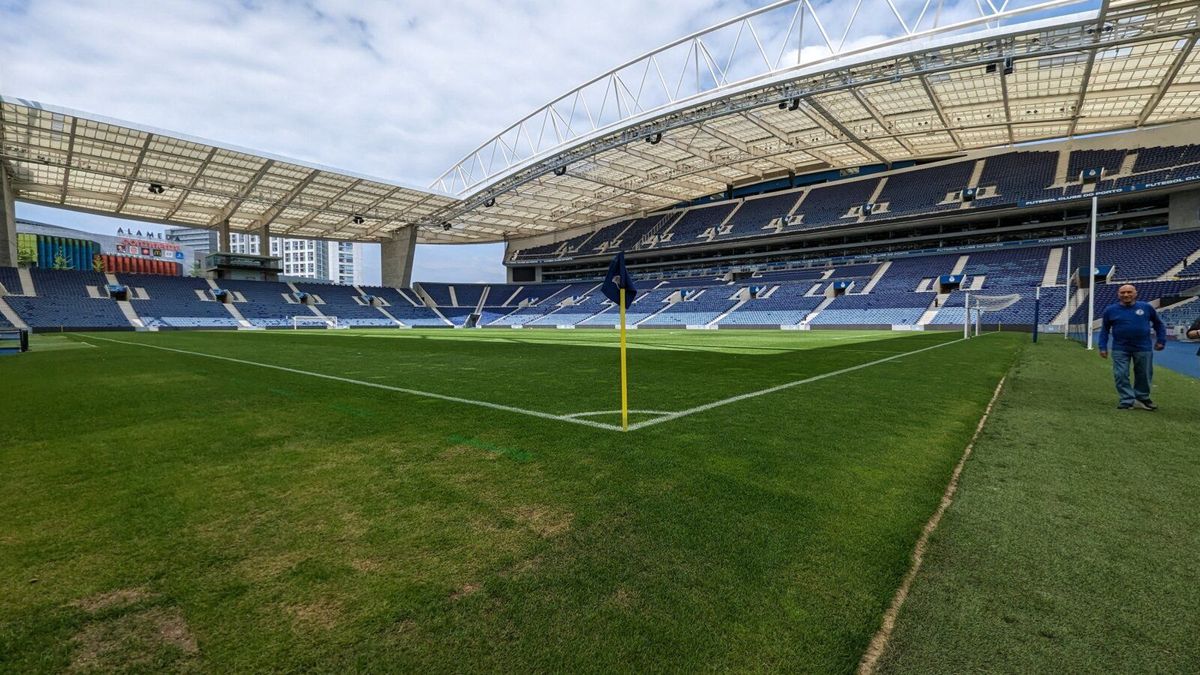
When we were in Lisbon, one of Lisbon’s two principal football teams Benfica wrapped up the championship of La Liga, Portugal’s football league. We had big dreams that we’d attend a football game during our visit, but the season was wrapping up as we got there. The last game was win or die for Benfica, so we had no chance to get tickets. It didn’t help that the game we thought would take place on Sunday was actually scheduled for Saturday night.
Benfica won, and Lisbon resounded that night with happy partiers. In the morning the wreckage was everywhere.
Benfica’s a perennial contender. Their classic rival is Porto FC (“football club”), just three hours up the coast.
When we were in Porto, Z, M and I decided to take a stadium tour of Porto FC’s Estádio do Dragão 🐉. The bus to the football stadium took us out of the tourist part of town and dropped us right off.
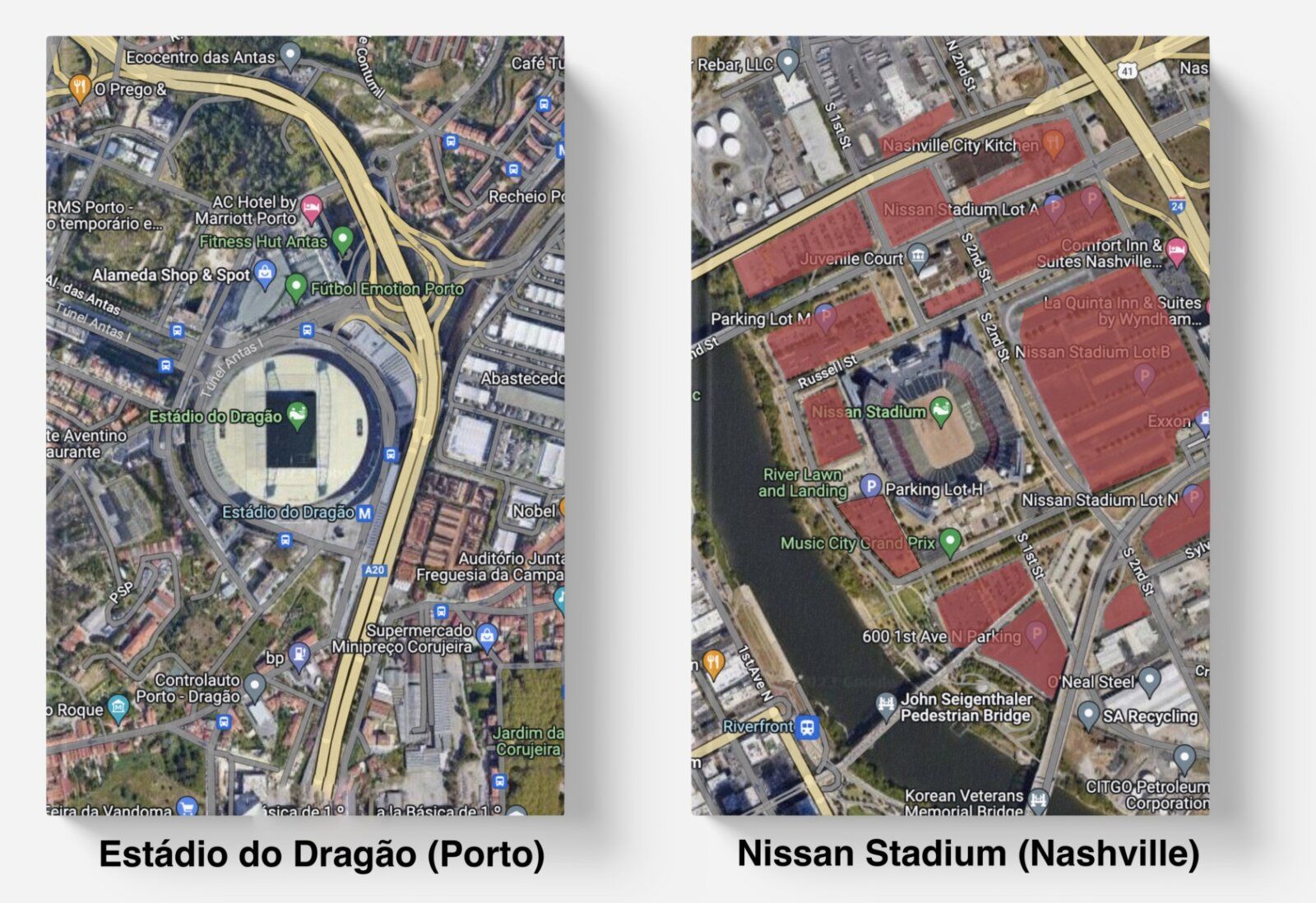
For comparison, I’ve highlighted the surface parking around these two stadiums that I know. That’s right, I couldn’t find any surface parking in Porto. But the stadium is surrounded by a bunch of bus stops and a massive metro stop.
Porto FC has a storied history and they’ve devoted a huge amount of space to a museum. With a ticket to the museum, we also got a tour of the stadium, given by two half-interested staff.
The tour of the stadium included a chance to walk beside the field (look but don’t touch), a chance to sit in the players’ box on the side of the field. At each stop we’d be promised five minutes to look around, then thirty seconds later, it was time to move on.
We toured the President’s box, and then under the stadium, we got to see the player’s tunnel, the “hall of glory.” The massive touring bus was parked down there alongside the previous bus which was used for the junior team.
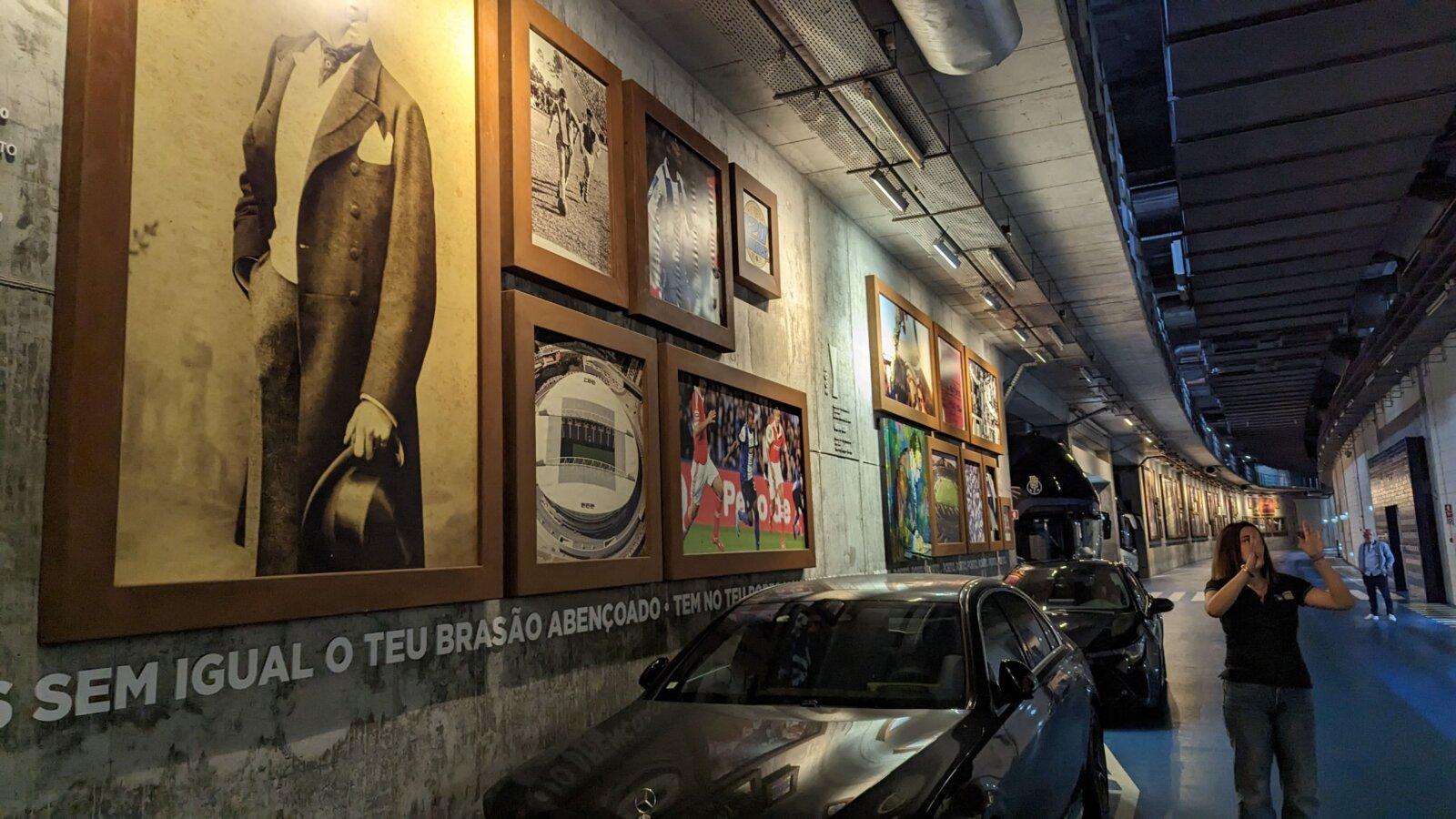
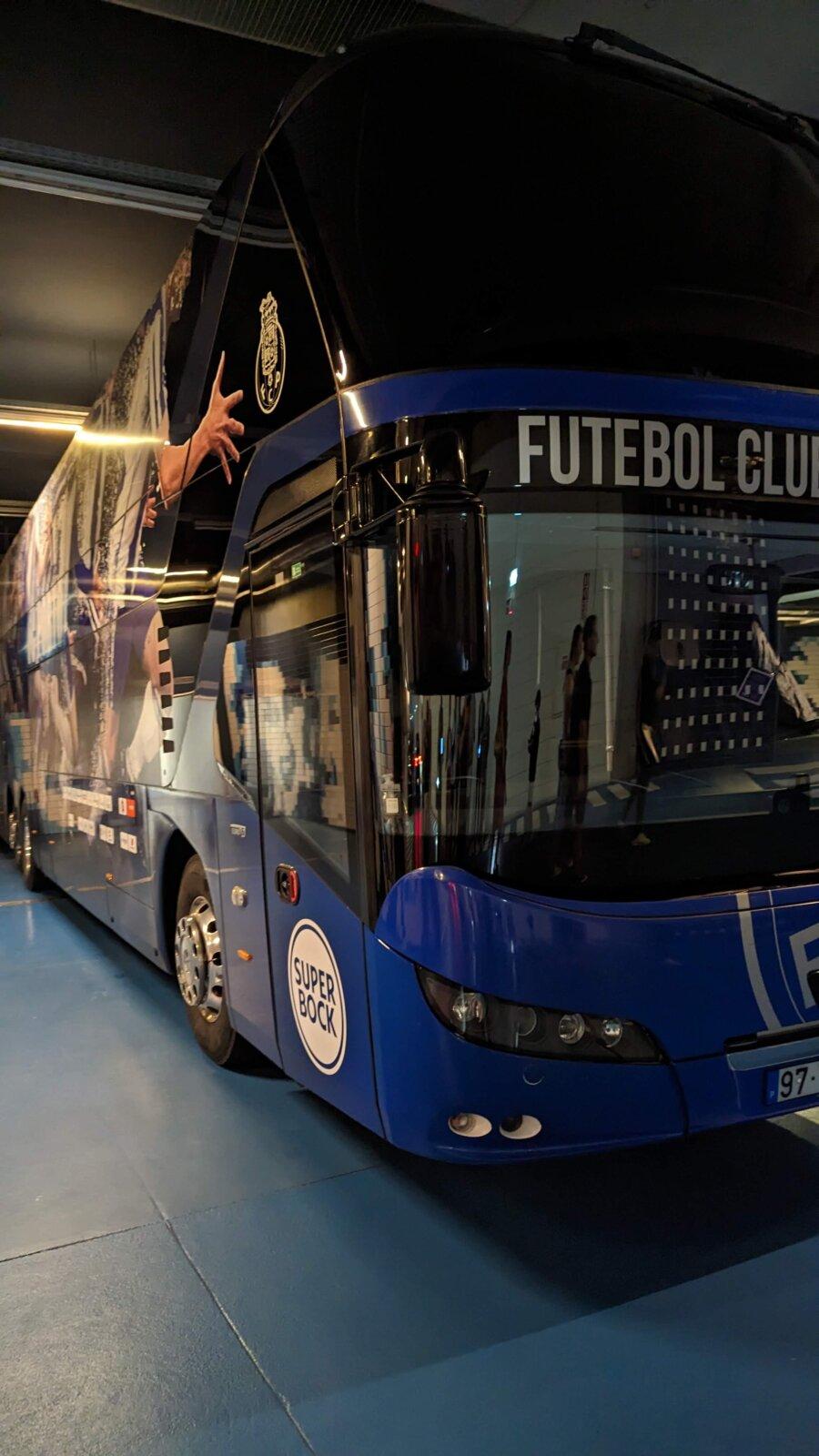
The last part of the tour was going through the locker rooms (visitor’s side only). We saw a massive Jacuzzi, massage rooms, lockers.
Finally, we toured the museum. Porto FC evolved from a sporting club. Sport is an invented concept; the idea of competing in athletics emerged from English culture around the start of the 20th century. For Porto, this meant in the early years of the century the sporting club was a home for many kinds of athletics; swimming, soccer, boxing.
The focus became soccer and the team in the last 50 years has won every kind of trophy that’s winnable in European soccer.

